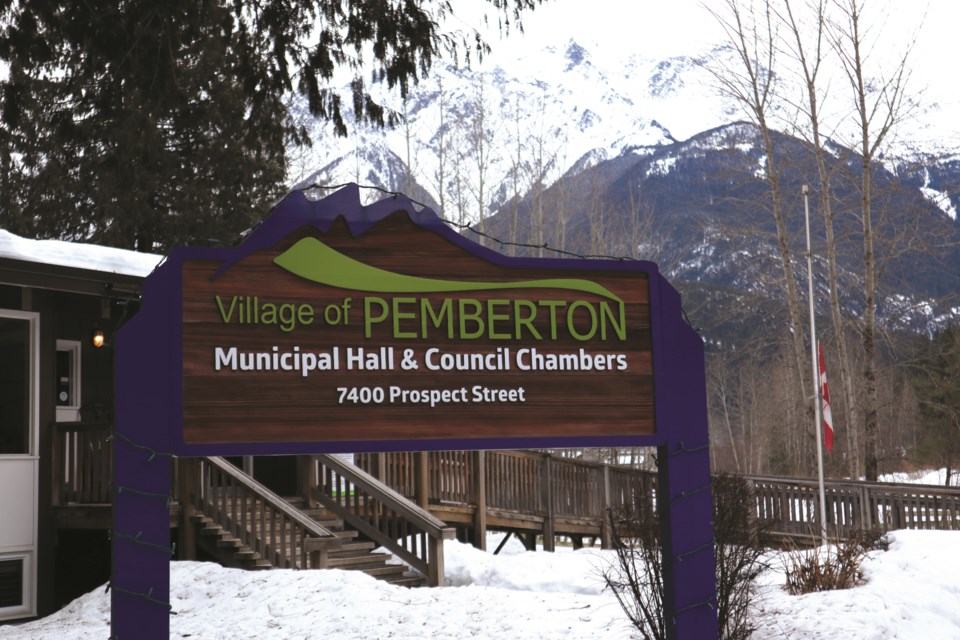Google “Whistler short-term rentals” and you will find a bevy of options, including some truly extreme offerings. Take, for instance, a nine-bedroom chalet on Alpine Crescent that—at the time of this writing—goes for an exorbitant $10,000 per night. Vacation rental companies like Airbnb have made a fortune in the Sea to Sky corridor as locals and newcomers have struggled for years to put an affordable roof over their heads.
Not wanting Pemberton to be overrun with pricey short-term rentals, in 2017, officials began the process of amending the local zoning bylaw. After extensive community input, the modified bylaw was adopted in July 2018.
Part of the current bylaw states that the number of short-term vacation rental licenses available in a calendar year shall not exceed five per cent of the total number of single-family dwelling units located in each of Pemberton’s neighbourhoods.
Those wishing to operate a vacation rental must first apply for a license. If approved, they must also sign a Good Neighbour Agreement indicating that they will obey noise and parking guidelines in their area.
Going into the current Official Community Plan (OCP) review, Mayor Mike Richman and Sheena Fraser, manager of corporate and legislative services for the Village of Pemberton (VOP), both believe that the five-per-cent cap is here to stay.
The rationale behind the policy was—and is—straightforward: preserve Pemberton’s inventory on the long-term rental market so that locals have an easier time finding stable residences. Quality of life was also a key consideration, as councillors believe that people who chose to move into residential neighbourhoods should not have to deal with a carousel of visiting outsiders or the possibility of vacation properties turning into raucous party hubs on their streets.
At the same time, elected representatives recognized that the sharing economy is not going to disappear any time soon. They reasoned that a total ban on short-term rentals would likely cause landlords to take their business underground, employing illicit methods that would be more difficult for authorities to track. A five-per-cent limit is meant to achieve a happy medium: safeguard Pemberton’s housing landscape while being considerate of differing values and business initiatives.
Pemberton has only one bylaw officer, and thus is unable to proactively enforce all of its bylaws. While VOP staff try to monitor local activity on the short-term rental market, they depend on residents to report any illegal or non-sanctioned rental activity within village borders.
In 2017, Pique reported that most Pembertonians seemed to be either ignorant or dismissive of rules surrounding vacation rentals at the time. Today, Richman feels that the current policy has served its intended purpose, citing relatively few complaints and a similarly low number of illicit “underground” rentals in the area over the last four or five years.
Additionally, there are fewer vacation rentals in the village than one might assume.
“If people go on Airbnb’s website and [search up] Pemberton, it shows that there can be up to 150 spaces, but what we’ve generally seen is: that reflects all the way up to D’Arcy and all the way down to Whistler,” said Fraser during the Feb. 7 council meeting. She believes that the number of locals wanting to operate an Airbnb has somewhat diminished over time as people lose interest in regularly cleaning their properties or hiring others to do so.
“All in all, I feel like we’ve struck the balance [with the five-per-cent cap],” Richman opined. “Like any policy, though, we’re going to keep an eye on it. We all know that our housing situation is dire.”
Fraser concurs, noting that many Pembertonians have been taking their homes off the rental market for various reasons. Some landlords prefer to accommodate friends and family members instead of strangers, while others have been burned by irresponsible or uncooperative tenants.
The VOP’s policy on short-term rentals has remained largely the same since its introduction, as have prevailing attitudes about the overall issue. According to Fraser, councillors rejected a 2022 motion to increase the cap beyond five per cent. Nonetheless, the bylaw will be re-evaluated this year.
“I look forward to the conversations in the OCP review to hear if people’s attitudes have changed, if they feel that our policy is either too tight or not tight enough,” Richman said.
The VOP is hosting an open house on its OCP review on March 6 from 4:30 to 7:30 p.m. at the Pemberton and District Community Centre.
Read more about Pemberton’s OCP review and share feedback at haveyoursay.pemberton.ca/ocpreview.




